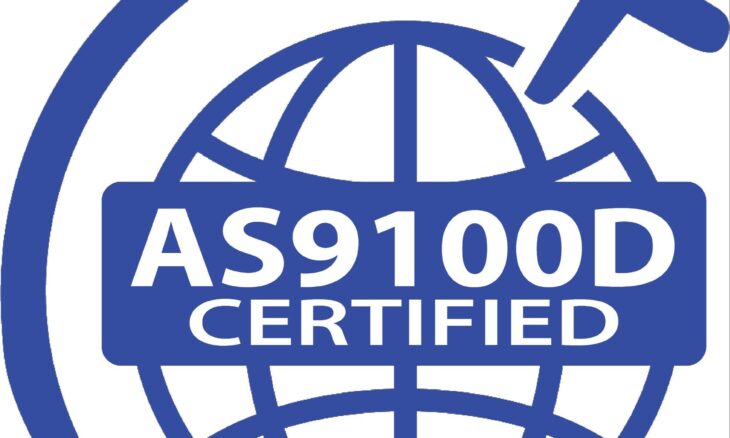
In the high-stakes worlds of aerospace and defence, trust isn’t given; it’s earned through demonstrable proof and rigorous validation. This is where standards like AS 9100 D come into play. You often see it listed on websites and datasheets, but what does this certification truly represent?
More than just a badge of honour, AS 9100 D is a comprehensive framework for building unparalleled reliability. It’s the gold-standard playbook for quality and safety in aviation, space, and defence, tailored to address the unique and extreme demands of these sectors.
But let’s be clear: a certificate is only as strong as the commitment behind it. So, what does it look like when a company truly lives this standard? To understand that, we can look at an organization that has recently earned this achievement, like Innomet. Their recent certification gives us a perfect, real-world model to decode the real-world impact of AS 9100 D.
The Foundation and the Specialization: ISO 9001 and AS 9100 D
First, it’s crucial to understand that AS 9100 D is built directly upon the framework of ISO 9001:2015. Think of it this way: ISO 9001 is the universal foundation for Quality Management Systems (QMS), establishing the core principles for ensuring consistent quality and customer satisfaction. AS 9100 D takes that solid foundation and layers on the specific, heightened requirements demanded by the aerospace, aviation, and defence industries.
Is it compulsory? For any organization wanting to be a direct supplier in these sectors, effectively, yes. While not a legal mandate, it has become a non-negotiable prerequisite for most major OEMs (Original Equipment Manufacturers) and prime contractors. You cannot be a serious player without it. The two standards are designed to go together seamlessly—a company certified to AS 9100 D is, by definition, also meeting all the requirements of ISO 9001:2015, plus the critical aerospace-specific additions.
The Core Principles of AS 9100 D in Action
While the technical requirements are detailed, the philosophy is built on a few powerful pillars. When a company like Innomet passes the audit, it’s a signal that these principles are deeply embedded in their culture:
Proactive Risk Management: This is the heartbeat of AS 9100 D. It’s not about finding defects after the fact; it’s about building systems to identify potential problems *before* they happen. For a manufacturer, this means every batch of material and every production step is scrutinized for risks long before a final product is ever made. It’s a mindset of prevention, perfect for producers of high-performance materials like tungsten heavy alloys.
Uncompromising Product Safety & Reliability: The standard mandates processes that guarantee every component is safe and will perform its function under demanding conditions. This is non-negotiable for a supplier whose components are destined for applications where failure is not an option. It’s the difference between making a product and crafting a reliable solution.
Full Traceability: In these industries, knowing the complete history of a part is critical. AS 9100 D enforces rigorous traceability. This means a single component from a company like Innomet can be tracked back to its raw material batch, the machine that produced it, and the inspections it passed. This level of transparency is what allows their partners in defence and aerospace to manage their own supply chains with absolute confidence.
A Culture of Continuous Improvement: The standard isn’t a one-time achievement; it’s a cycle of constant refinement. It signifies that a company isn’t just resting on its laurels but is committed to systematically getting better, smarter, and more efficient. This is especially critical in R&D-driven environments, where the goal is to consistently push the boundaries of material performance.
Why This Certification is a Signal to the Market
When a respected certification body conducts a thorough audit and awards the AS 9100 D certificate, it provides the market with independent, expert confidence. For a company, it’s a powerful statement of intent. For their customers, it’s a source of deep reassurance.
It tells the industry: “We have the mature systems, the disciplined culture, and the proven capability to be a trusted partner on your most critical projects.” It transforms a supplier from a simple vendor into a strategic extension of your own quality team.
More Than a Certificate, It’s a Commitment
Ultimately, achieving AS 9100 D certification, as demonstrated by companies like Innomet, is a significant declaration. It represents a deep, organizational dedication to discipline, consistency, and operational excellence that goes far beyond the baseline of ISO 9001.
It’s a clear message to engineers, project leaders, and procurement specialists that they are engaging with a partner who speaks the language of quality fluently and is built to support the most ambitious and demanding missions.
For industries that push the boundaries of human achievement, AS 9100 D isn’t just a standard—it’s the bedrock of trust. And when a company truly embodies it, that trust becomes their most valuable product.
#AS9100D #AerospaceQuality #DefenceManufacturing #QualityManagementSystems #AerospaceStandards #OperationalExcellence #ContinuousImprovement #RiskManagement #ProductSafety #Traceability #AviationIndustry #DefenseIndustry #QualityAssurance #Innomet #ManufacturingExcellence #IndustryStandards #TrustedPartner #SupplyChainReliability
